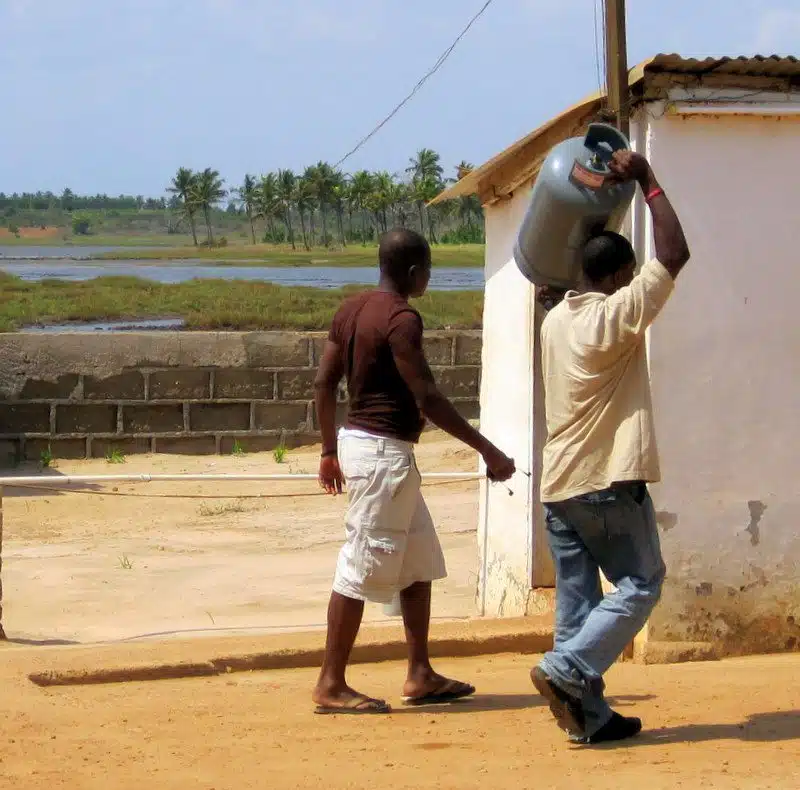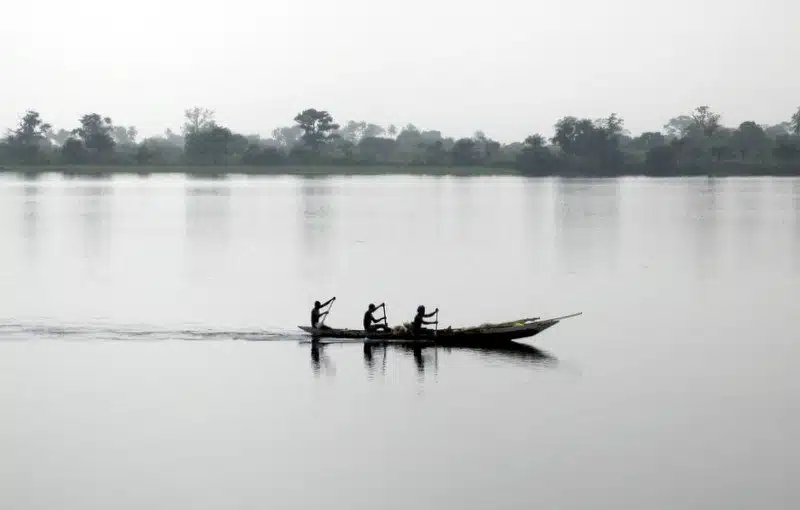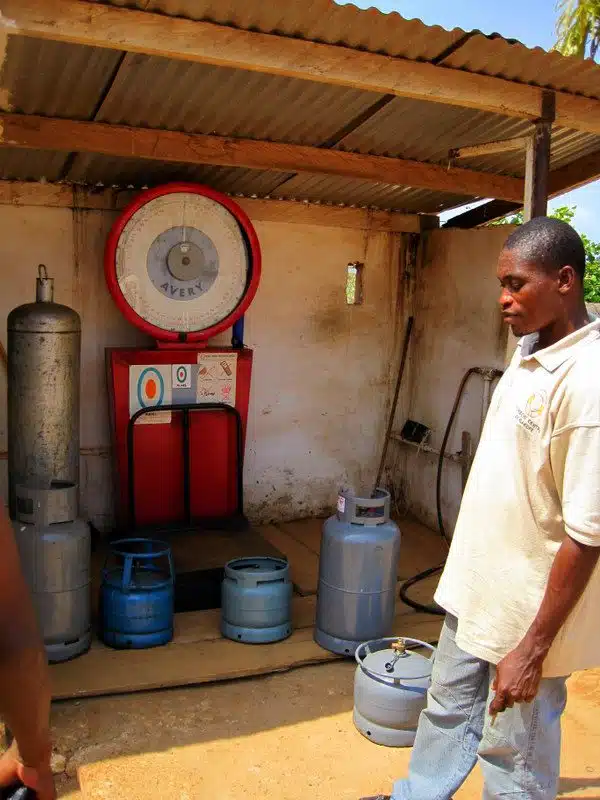Confession: I was a raging, frustrated brat all of last week. Why? So much of daily life here in Ghana’s Volta Region feels… harder!
Case in point: the stove.

Two weeks ago, we ran out of gas for the stove. Easy enough to re-fill the chubby silver tank, right? Wrong. Sogakope is currently completely out of stove gas. Further, it appears the entire Volta Region of Ghana is out of stove gas.
The reason for the shortage has something to do with complex economics and national management of resources, but the bottom line was clear: we would need to drive at least two hours to obtain gas. And did I mention that YCC has no car?

So for two weeks, Millicent did what most Ghanaians with no gas stove (aka, most people here) do: she cooked on the floor of our porch with a foot-high metal structure smoldering with lit charcoal. A mini-barbecue! Except with a plastic bag lit into flames to start the heat.
See the photo to the upper left for an illustration. Mmm… vegetables and gari... Another Ghanaian meal like fufu that makes my tummy grin.
Though Millicent is admirably proficient at cooking with that small outdoor flame, a gas-empty stove is a waste of space and invested money. Hence, we at last decided set off to scour the countryside for fuel.
John pooled money to hire a taxi, and off we went! The minutes flowed by, and the scenery flew past. And then– BUMP!– we slowed to a thumpity-thump crawl as we entered the rutted dirt roads an hour West of Sogakope.
Every store we passed was emblazoned with the depressing sign: “SORRY, NO GAS.”
We drove on.

Around Keta, the waters from that Atlantic Ocean and Volta River somehow twisted and turned to become a lagoon. At times the lagoon was marshy and green with reeds. At times it was silvery and smooth. Always, there were men and women wading inside with nets to catch water beasts for food and sale, along with the water itself for washing and (gulp) drinking.
“NO GAS!” mocked the next four signs. So — bump, bumpity BUMP! — on we drove.
At the sixth anti-smuggling police check-point (they are everywhere on that road to Togo!) the policeman demanded our destination.
“We go in search of gas,” John asserted, gesturing to the empty tank in our trunk.
The policeman guffawed derisively. “Good luck!” he said, slapping our car with his palm. On we drove.
After two hours of arduous driving from Sogakope, we got so near to the border with Togo I could almost hear the French-accented Ewe drifting through the hot dust.
And it was then we spied it: a gas station which actually had stove gas in supply!!! I became so happy that I leaped out of the car then and there and bought us all Fan Ice while John and the taxi driver filled our thirsty metal road buddy. Glug, glug, glug… went the silver tank as he drank deep. He was parched! And so were we. We sucked at our strawberry Fan Ices hungrily, still dripping with sweat as the cool cream soothed our burning throats.
On the long drive back home, the policeman at the check-point was so impressed that we’d actually found gas! The next checkpoint officer, however, was not so sweet. In fact, he tried to hold up the driver on false charges in hopes of getting a bribe… until he saw that a foreigner was observing his unscrupulous actions from the back seat!

That night, our meal was hot and tasty, heated by hard-earned gas.
But you see what I mean? For an impatient and privileged American, it is a world apart to have to wait, and work, and exert sweaty effort for everything, from printing out a single page (the few printers in town are forever broken or out of ink!), to a simple ATM visit (it’s a two hour tro tro ride away!), to washing your sweaty shirts (by hand of course!).
And yet… in the words of YCC staff member Godfred: “It is a lifetime experience.”
Or in the words of my high school track coach: “Pain is weakness leaving the body.”
Or finally, in the words of so many patient, persistent, calming Ghanaian friends: “Don’t worry! It will be okay!”

The author, Lillie Marshall, is a 6-foot-tall National Board Certified Teacher of English, fitness fan, and mother of two who has been a public school educator since 2003. She launched Around the World “L” Travel and Life Blog in 2009, and over 4.2 million readers have now visited this site. Lillie also runs TeachingTraveling.com and DrawingsOf.com. Subscribe to her monthly newsletter, and follow @WorldLillie on social media!

Emmanuel G.
Tuesday 17th of November 2015
This article shows that we can't take things for granted. We should always appreciate what we have.
Alan
Tuesday 17th of November 2015
We should be grateful since we don't have to face the trouble they face in Ghana.
Jack A
Thursday 26th of February 2015
I thought that it was really interesting that you have to work for your gas because we usally just pull out some cash and pay but they have to actually do labor and work for there gas. I can imagine that it would be really tough to have to do that all the time but I thought that was interesting.
Nathalie
Wednesday 25th of February 2015
I could agree and understand your frustration being so used to having everything there like the stove with gas all of the time. Your experience in Ghana obviously had shown that not having something could be really stressful and really frustrating because you are already so used to having everything that you need given to you right in your hands and not having them would seem really hard.
Dawn Casey-Rowe
Saturday 9th of February 2013
I agree. I lived in Russia. Things get challenging, and you get creative. Buying "whatever" is in the store because that's what there is--knowing you'll probably trade it later. We take a lot for granted.
Lillie
Saturday 9th of February 2013
Interesting comparison to Russia! We do take so much for granted.